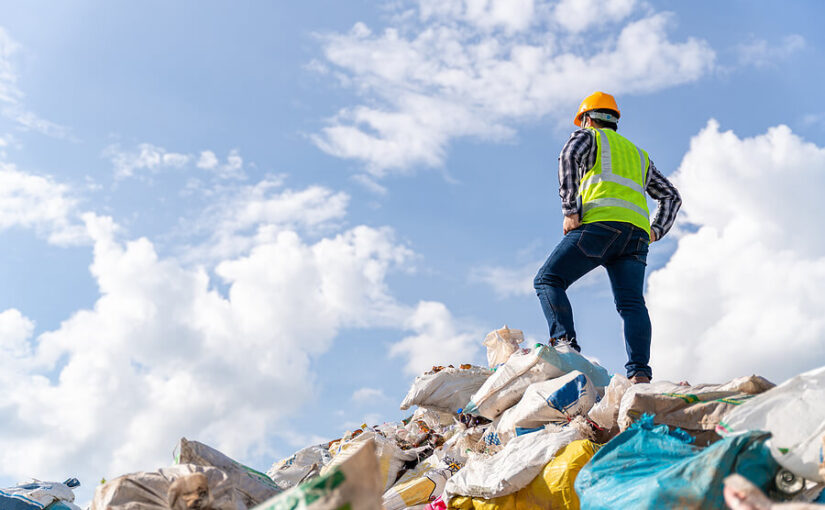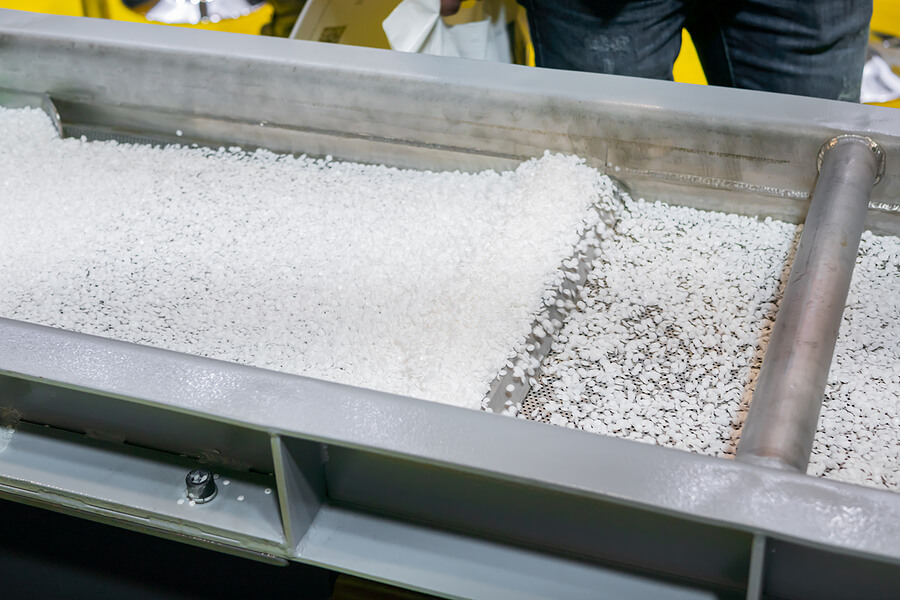With the world’s population producing a growing amount of plastic waste, the need for new and improved recycling methods is crucial.
Studies show that recycling more efficiently can help reduce greenhouse gas emissions by minimising energy consumption and using raw materials. Unfortunately, the world is also generating twice as much plastic waste as twenty years ago, with most of it ending up in landfills, incinerated, or dumped into the environment. According to some reports, we only correctly recycle around 9% of our plastic waste.
But is there a way to combat our waste problem with innovative recycling solutions? Could science, technology, and thinking outside the box alleviate our reliance on unsustainable waste disposal methods? Discover the latest recycling methods and find out where the future could lead.
Plastic infrastructure
One of the most popular plastic recycling trends is using old products to form infrastructure parts.
Some companies are trying new ways to combine plastic waste with other materials to form robust foundations for roads, bricks, and even housing.
MacRebur is currently pioneering the push for plastic roads, using only single-use plastic to reduce the global carbon footprint. The company adds unrecyclable plastic products to asphalt road mixtures, aiming to ‘solve two world problems with one simple solution’. Not only are they reducing the amount of unrecyclable plastic waste, but they are also improving road conditions and providing increased road access.
Ecobricks is another company aiming to improve society’s physical environment. Their Ecobricks are PET bottles packed with recycled plastic and are safe to use in the short and long term. The earth’s natural process of securing loose carbon to make the biosphere greener inspires these manually made reusable building blocks by stopping the plastics from degrading into toxins and microplastics. Businesses and organisations can use them in open spaces, modular units, garden structures, and more.
The climate crisis and political turmoil have increased the number of refugees worldwide. To meet growing demands for robust shelter, researchers from the University of Bath founded Protomax. They developed recycled plastic boards (Storm Boards) that replace the need for plywood, MDF, chipboard, and more.
Not only do Storm Boards minimise the reliance on natural wood resources, but they also utilise mixed plastic waste by turning it into valuable products. Storm Boards are used for shelters and are low-cost and easy-to-construct — useful during times of crisis.
Plastic furniture and accessories
Furnishing our homes with plastic products may not sound appealing, but plastic-made furniture and accessories are one of the growing trends in recycling. New recycling methods and innovative technologies transform ugly plastic waste into beautiful, eye-catching pieces.
The New Raw combines the growing trend of 3D printing with plastic recycling to create unique furniture. From modern coffee tables to beach huts that seamlessly blend with the landscape, the research and design studio aims to breathe new life into discarded materials.
Spending more time at home gave way to a new fascination with house plants, which design company Elho is on-hand to help you decorate. Elho utilises one of the biggest trends in the recycling industry—using plastic waste as the bulk of their raw materials. The result is beautifully designed plant pots in several sizes and colours for indoor and outdoor use.
Netherlands-based Plastic Whale is cleaning Amsterdam’s canals and turning plastic waste into stylish furniture pieces. Volunteers roll their sleeves up and go ‘plastic fishing’, collecting over 4,000 PET bottles annually. Plastic Whale then turns the bottles into flakes and fibres to make into recycled PET felt to use in their furniture. From tables and chairs to lamps and acoustic panels, these pieces of furniture are stunning additions to a plastic-free home.
New methods of recycling
Turning plastic waste into usable products isn’t the only way businesses want to reduce our environmental impact. The future of recycling could look a lot more innovative, with new methods of recycling being tried and tested in the industry.
Magnets
Altais Nova is developing a magnet additive that improves a material’s air and moisture insulation. The additive, made of tiny platelet-shaped silicate and iron oxide particles, is easy to identify and separate at recycling facilities, making for increased recycling rates.
AI
Human error and judgement are among the most significant hindering factors to efficient recycling, as laziness and a lack of knowledge restrict us from properly separating our waste.
Luckily, Artificial Intelligence (AI) could help by identifying the composition and configuration in different situations and determining where and when a material is recyclable. The technology could effectively sort our waste, no matter how dirty, mangled, or confusing, meaning we could reuse more.
Bacteria
Did you know that certain bacteria eat non-biodegradable plastic and turn it into PHA, an eco-friendly, biodegradable plastic? Studies have shown that some ocean microbes have evolved to eat our single-use plastics and can degrade up to ten different types.
The race is now on to utilise the enzymes for industrial use, using lab studies to determine the potential degradation rate. These tiny microbes and their plastic-munching abilities could help alleviate our fight against plastic pollution.
Depolymerisation
Recycling Technologies is attempting to reverse the plastic manufacturing process, turning plastic back into its original form — oil. This process is known as depolymerisation, using thermal cracking to break plastic into ‘Plaxx’.
The company believes that Plaxx could be used to power vehicles that use heavy oil products, like tanks, or be used to make other plastics.
Purify
The colours, odours, and other contaminants in plastic make the material challenging to recycle — a problem for polypropylene plastic waste. This plastic is the second most used worldwide, yet only 1% is recycled.
PureCycle Technologies attempts to address this problem by using advanced technology to strip plastic waste and transform it into a resin base for new plastic products. PureCycle materials include plastic additives to modify the plastic so businesses can use it for different products. For example, a yoghurt pot could become a car bumper and vice versa.
This innovation could help eliminate our reliance on unsustainable raw materials and tackle our growing mountain of plastic waste.

